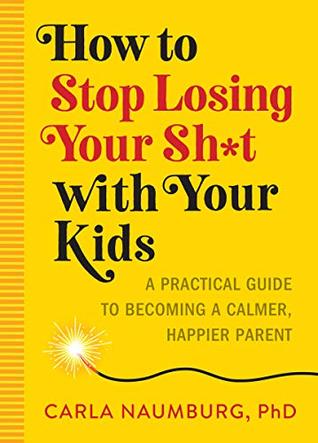More on this book
Community
Kindle Notes & Highlights
The first step is to calm down. This is nonnegotiable. Your body has been flooded with stress hormones, and it takes time for your parasympathetic nervous system to kick in, shut down the power to your buttons, and get your adulting brain back in the game.
Noticing is the first step. Once you realize that you’re treating yourself like crap, you can make a different choice, a choice to remember that: K Parenting is hard for everyone. K It’s OK to make mistakes. K Treating yourself with kind words and actions is the most effective way to avoid losing your shit again in the near future.
do the best you can, and remember this: There is no reason to punish yourself for losing your shit with your kids.
Self-compassion isn’t about ignoring the issue or letting yourself off the hook, it’s about noticing that you’re struggling, reminding yourself that you’re not alone, and treating yourself with kindness.
Get curious about yourself, your triggers, and, yes, your loss of shit. Each time you do, you’re turning on your adulting brain, treating yourself with compassion, and getting clear on what just went down and what you can do differently next time.
when you get curious and take a moment to investigate and notice what you’re feeling, thinking, and experiencing, you’re more likely to remember that you haven’t slept in three days and your parents have been obsessively texting you about their annual Ugly Sweater Holiday Party. Once you realize that, you can choose to silence your phone and get some sleep, either of which would be a more effective response than wallowing in your own self-pity.
Whenever your buttons get all lit up, each time you get stuck in a cranky, pissy, about-to-lose-your-shit headspace, get curious about, well, anything.
Once you’re calm enough to get curious about your body, feelings, and thoughts, do that.
As you get more insight into what happens to you each time you explode, you’ll get better at knowing what to look for, including the warning signs that will remind you to cool off the next time you’re ready to blow.
Asking these questions can be incredibly hard and finding the answers can be even harder. Hell, even figuring out which questions to ask can be rough. It’s OK to not know, and you don’t have to figure it out alone.
Checking in with your kiddo after a major meltdown is crucial.
Reconnecting with parents and other caregivers is a powerful and effective way to help children get calm and grounded. It can also help rebuild your relationship, which is important for lots of different reasons. Talking to your kids will help them understand what happened so they don’t go making all sorts of inaccurate assumptions, like, say, that it was all their fault and they’re terrible children.
An apology is a great place to start, and yes, you can absolutely positively 100 percent apologize to your child without undermining your own authority or upending the power dynamic in the family.
Once you’re really calm, you can offer a meaningful apology, which generally has three parts: 1. Take responsibility for your behavior. Own your role in the situation, whatever it was. 2. Say you’re sorry. Simple as that. 3. Make a plan for moving forward. Explain what you’re going to do differently, and how it will help.
K You can always identify or acknowledge your feelings, but you never have to apologize for how you feel.
K Don’t make promises you can’t keep. Don’t say you’ll never lose it again, as that’s unlikely to happen.
K Resist the urge to overtalk or overexplain. Say what needs to be said as succinctly and clearly as you can.
K It’s OK if apologizing is hard for you. It’s hard for a lot of folks, and it will get easier with practice.
K Notice if you’re expecting a specific response from your child (an apology, a hug, etc) and you start getting all twitchy when you don’t get
While reconnecting with your child may start with an apology, it doesn’t have to end there.
it’s about attunement, which means doing the best you can to get in sync with what’s going on with your kiddo, and proceeding from there.
Remember, at this moment, it’s not about you. It’s about paying attention to what your child needs and responding in kind.
The same goes for you; you also need to notice what you need and decide how and when (but not if!) to take care of yourself.
If you can get some space, and your child is old enough to understand, tell them what’s going on.
The last step toward protecting and nurturing your relationship with your children is doing whatever it takes to reduce the likelihood that you will lose it again.
After each explosion, make some time to reflect on what happened. Self-awareness is the crucial first step toward change. What triggered you? How have you been doing with your BuRPs recently? What changes do you need to make in the next day or two to manage or reduce your triggers and take care of yourself?
This isn’t a time to judge or berate yourself; that’s counterproductive. Curiosity and self-compassion are your best moves here; They’ll help you get the clarity and insight you need to move forward.


